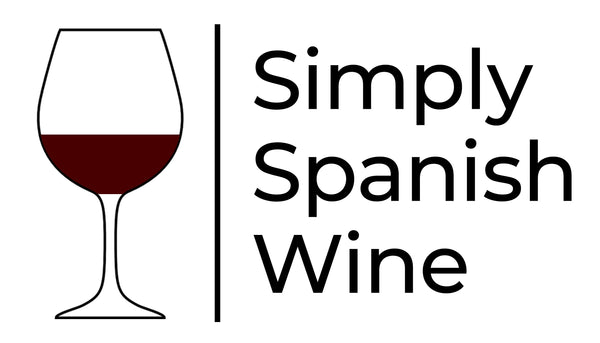[title]
[message]Casa Agrícola Blanco
Casa Agrícola Blanco
An aromatic white wine with a strong Mediterranean heritage.
DO Alicante
A wonderful fusion of Mediterranean aromas, with layers of jasmine and orange blossom combined with citrus notes of lime and orange peel. Once the wine has been open for a while, the Macabeo makes its presence felt a little more with notes of fennel and aniseed. Very fresh on the palate with good volume in the mouth.
In stock
Couldn't load pickup availability



Collapsible content
Technical details
- Producer: Pepe Mendoza Casa Agrícola
- Region: DO Alicante
- Vintage: 2022
- ABV: 13%
- Grapes: Moscatel, Macabeo, Merseguera
Food pairings
This wine will go well with:
- Shellfish
- White fish
- Salads
- Pasta
- Pizza
- or on its own
Who makes it
Pepe Mendoza Casa Agrícola is a family winery run by Pepe Mendoza – son of Enrique Mendoza who has been making wine in the Alicante region since the 1970s – with the help of his wife Pepa, their three children and dachshunds Lola and Syrah. Based in the village of Llíber, sustainability, respect and tradition are at the heart of Pepe’s approach and he is passionate about local grape varieties and winemaking techniques that have been handed for generations ever since the time of the Romans.
In Pepe’s words, the project is all about ¨two terroirs, one landscape¨, and the vineyards are split between two main areas: the low-lying, more coastal county (comarca in Spanish) of Marina Alta behind the tourist towns of Dénia and Javea, and the higher area of Alto Vinalopó which is about 100km further inland. The 12-hectare Abargues estate surrounds the bodega in Llíber and is planted with historic Mediterranean varieties like Muscat of Alexandria, Giró, Monastrell or Alicante Bouschet, as well as Macabeo or Airén.
The grapes
More than one single grape, Muscat – known as Moscatel in Spanish - encompasses a whole family of hundreds of different varieties of vitis vinifera. Today, the main varieties used in winemaking are Muscat Blanc a Petits Grains, named after its typical ¨little berries¨ (known as Moscatel de Grano Menudo in Spain), and Muscat of Alexandria, or Moscatel de Alejandría in Spanish. In Spain, the former is most commonly found in Navarra, while Alejandría is more popular in the Mediterranean region, especially Málaga and Valencia. Locally in both regions, you’ll find people referring to it simply as Moscatel.
Moscatel is a Mediterranean variety. It thrives in the hot, dry climate of the Mediterranean basin; it is drought resistant, adapts well to different soil types and its grapes need lots of sunshine to ripen fully. Moscatel is a highly aromatic grape variety, and its key characteristic is that it is one of the only wine grapes that produces wines that actually taste like grapes. In different locations, it is used to produce a whole range of wines, from pale and bone-dry white table wines through to golden, sweet dessert wines.
Macabeo (or Viura as you’ll see it referred to in Rioja), is Spain’s fifth most widely-planted grape. You’ll find it used in lots of Spain’s wine-growing regions and in Catalunya it is one of the three main grapes commonly used in Cava (blended with Xarel.lo and Parellada). It’s a fairly adaptable grape variety, though it tends not to work so well in overly damp or dry climates. From a winemaker’s perspective, Macabeo is often seen as rather neutral and is often blended with other more aromatic varieties. Macabeo has aromas of white fruit coupled with floral and sometimes aniseed notes, and the wines tend to be fresh with good acidity.
Merseguera is a native variety from Valencia, which you can also find grown today in Alicante, particularly inland in the higher reaches of Vinalopó, and DO Jumilla. One of its main characteristics, highly appreciated by Mediterranean winegrowers, is its resistance to drought. It ripens slowly, especially on higher ground, and is harvested late. Merseguera grapes tend to produce wines which are relatively low in alcohol and pale to straw yellow in colour. In the right hands, and harvested early to avoid over-ripening, it can produce fresh, aromatic wines with light acidity and low alcohol. Higher, fresher areas will give more refined wines, with grassy and gentle fruit aromas and low to medium acidity, which makes them ideal for early consumption. In warmer areas, the alcohol levels tend to rise, hence their popularity for semi-sweet wines.
Where it's made
Pepe Mendoza Casa Agrícola Blanco is a blend of two important terroirs in Alicante: the Marina Alta region just behind the coastal resorts of Dénia and Javea where the Moscatel and Merseguera are planted in soils of clay and sandy loam respectively, and the highlands of Alto Vinalopó about 100km inland where the Macabeo is planted in sandy loam. All vines are traditional bush vines planted on average about forty years ago, and dry-farmed (ie no irrigation) following (uncertified) organic practices.
How it's made
The grapes are harvested manually in September to ensure optimum health of the fruit and the perfect balance of sugar, acidity and ph. Vinification is relatively simple and inspired by the philosophy that less is more. Each grape variety is harvested and fermented separately in small stainless steel tanks. The musts ferment freely with their own yeasts, with nothing added. The wine then undergoes a very light paper filtration prior to bottling and a minimal SO2 adjustment. No clarification, cold treatment or microfiltration. No skin maceration.



